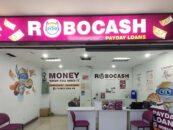
Partnerships Between Fintechs and Financial Institutions Drive Faster Innovation in ASEAN’s Digital Banking Sector
by Fintech News Singapore July 29, 2020In Singapore, the first digital banking licenses are expected to be granted by the end of this year, marking the debut of a new area in the city-state’s banking industry.
In June last year, the Monetary Authority of Singapore (MAS) announced that it would issue two digital full bank licenses and three digital wholesale bank licenses in a bid to spur innovation by opening up the market to new players.
Out of the 21 digital banking applications received, 14 eligible applicants (five digital full banks and nine digital wholesale banks), will progress to the next stage of assessment. According to a Strait Times report, the eligible applicants include the Beyond consortium, led by V3 Group and EZ-Link, which is contending for one of the two digital full bank licenses.
Digibanks coming to Singapore this year
When Singapore announced plans to shake up its banking sector by welcoming digital banks, it sparked immediate interest from tech firms, telcos and traditional banking institutions.
In light of stringent requirements, many opted to form consortia to boost their chances in winning a license, like the Grab/Singtel partnership, the AMTD/Xiaomi/SP Group/Funding Societies consortium, or the Singapura Finance/Matchmove partnership, to name a few.
A few have chosen to apply alone, including China’s fintech giant Ant Financial, TikTok owner ByteDance, and Internet group Sea.
Undeniably, a strong tech infrastructure and robust expertise in applying cutting-edge technologies including artificial intelligence (AI) and big data, will be key for firms and financial services companies alike to tap into Southeast Asia’s nascent digital banking landscape.
Incumbents team up with fintechs
In this rapidly evolving landscape, incumbents across the region have ramped up their digitization efforts by partnering with fintechs.
In Singapore, Icelandic financial software company Meniga has been strengthening its position by signing partnerships with the likes of Visa and the United Overseas Bank (UOB).
Having opened its 7th international office in Singapore last summer, “an exciting place to be right now, with clear and huge demand for digital banking and financial innovation,” according to Meniga CEO and co-founder Georg Ludviksson. Founded in 2009, award-winning Meniga provides white-labelled digital banking solutions that help financial institutions improve their online and mobile digital environment, and enrich customer experience.
Its portfolio of products includes personal finance management, automated real-time notifications, predictive analytics and personalized engagements technologies, as well as targeted rewards and consumer data analytics.
Meniga’s partnership with UOB, its first with a traditional financial institution in Southeast Asia, was inked in late-2018 and involved providing the bank with tools to help UOB Digital Bank customers keep track of their savings and expenses in real time. In February 2019, UOB eventually launched a digital bank in Thailand, called TMRW, which makes use of Meniga’s banking innovation platform. Following the success of its digital bank in Thailand, UOB said in February that it plans to enter the Indonesian market by the end of 2020.
Most recently, Meniga announced a partnership with Visa that will seek to bring Meniga’s AI-driven digital banking solutions to Visa’s Singapore-based clients.
Government support across Southeast Asia
With over 70% of Southeast Asian adults being unbanked or underbanked and mobile Internet penetration booming, the region represents an untapped opportunity for companies leveraging digital platforms to deliver cheaper, more efficient financial services.
Governments and regulators have recognized the potential of fintech in improving financial inclusion, and many, like Singapore, are now setting up the foundations to welcome digital banks.
Malaysia released its virtual banking licensing framework in December 2019 and is expected to begin accepting applications later this year, and Thailand is reportedly studying the possibility of licenses for digital banks.





